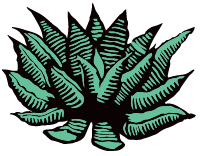The Michoacan soil in Mexico is known to be extremely suitable for agave cultivation, especially for the production of mezcal, tequila and pulque. Some of the characteristics of Michoacan soil that make it ideal for agave cultivation are:



OUR MEZCALES
Our mezcals are made with care and dedication, using traditional distillation methods that highlight their unique character. Each bottle we produce is the result of the passion of our maestro mezcalero, who follows centuries-old techniques to guarantee the highest quality and authenticity.
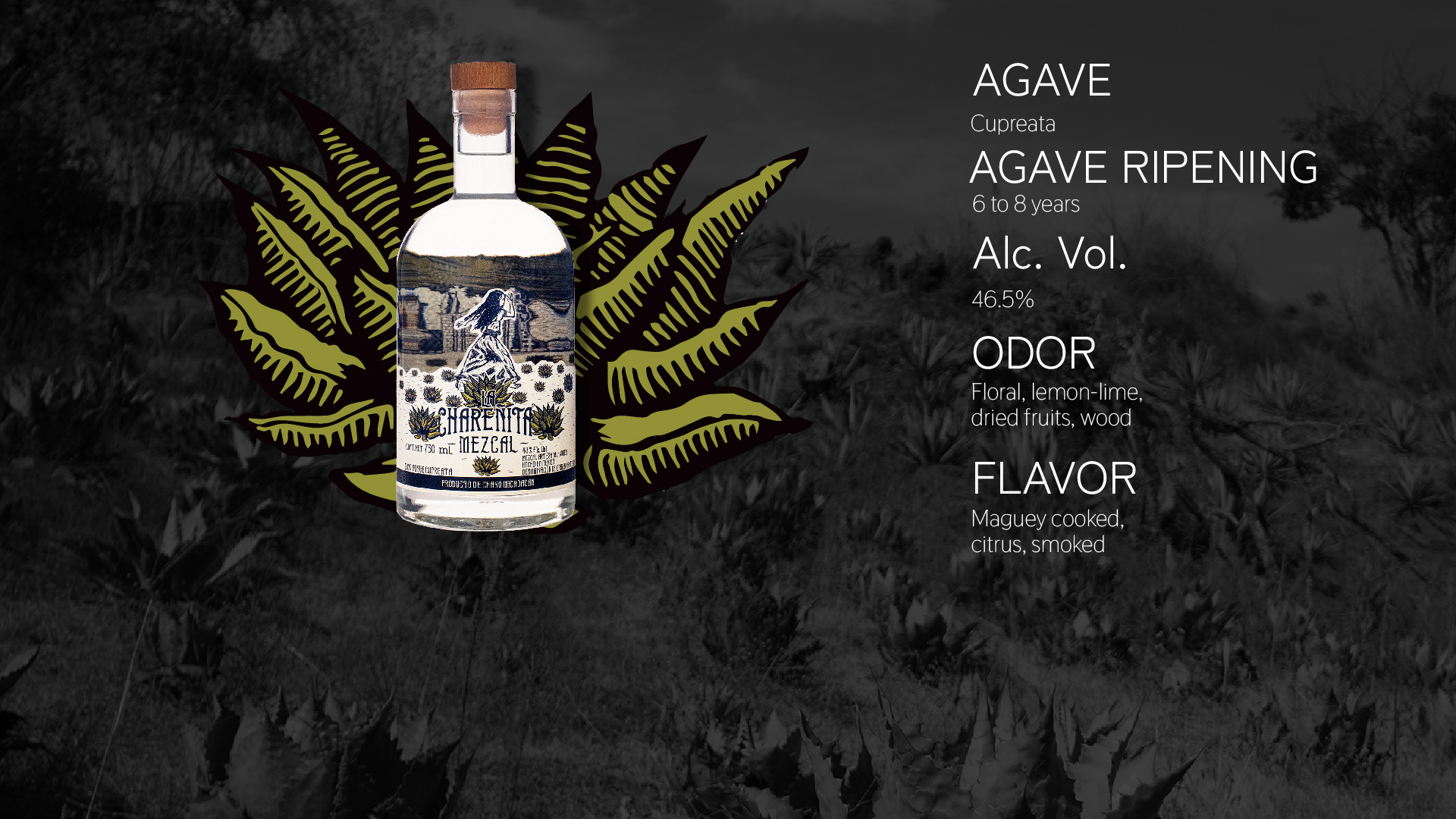
CUPREATA
100% agave cupreata
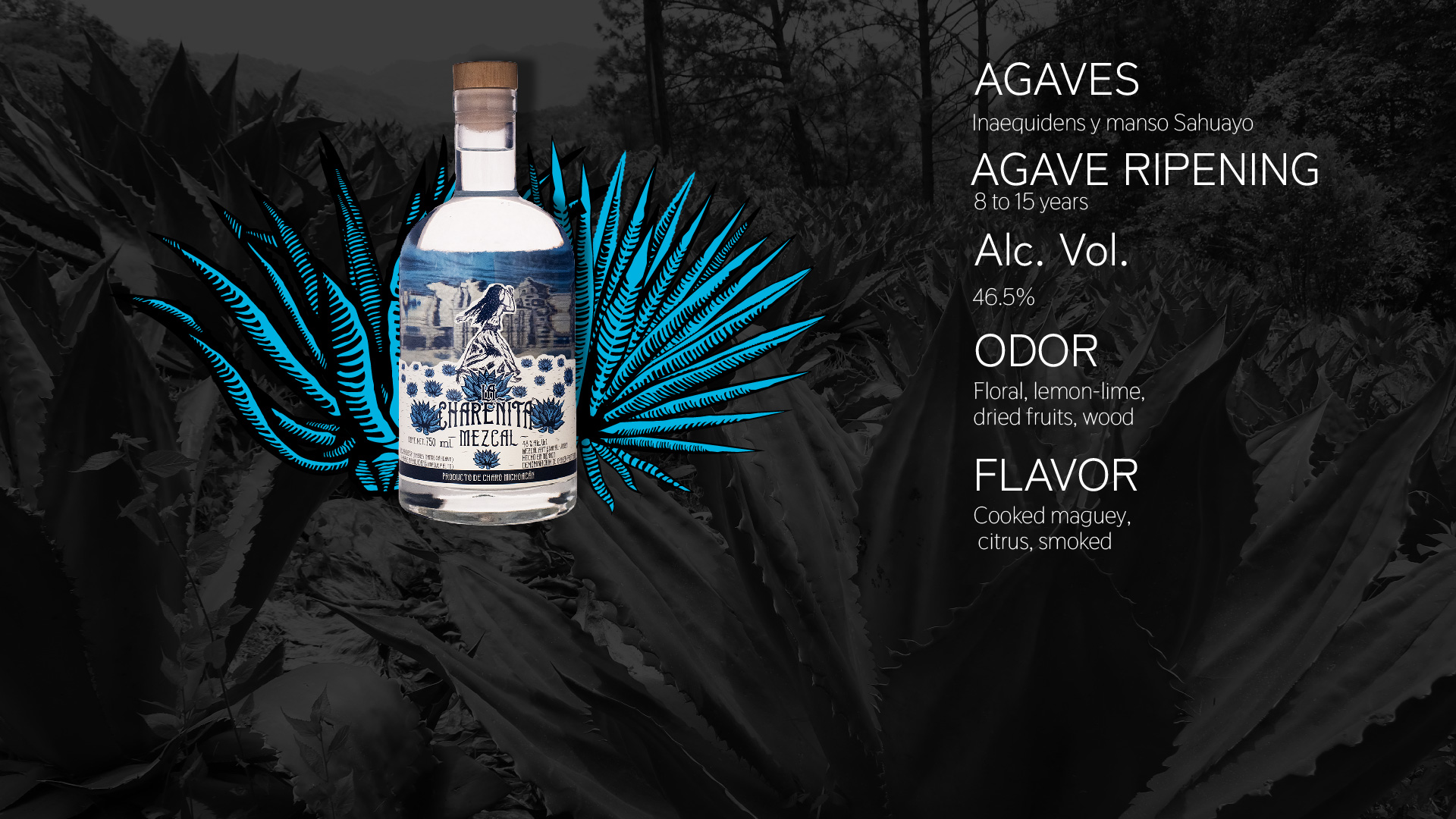
ENSAMBLE
50% agave inaequidens y 50% manso Sahuayo
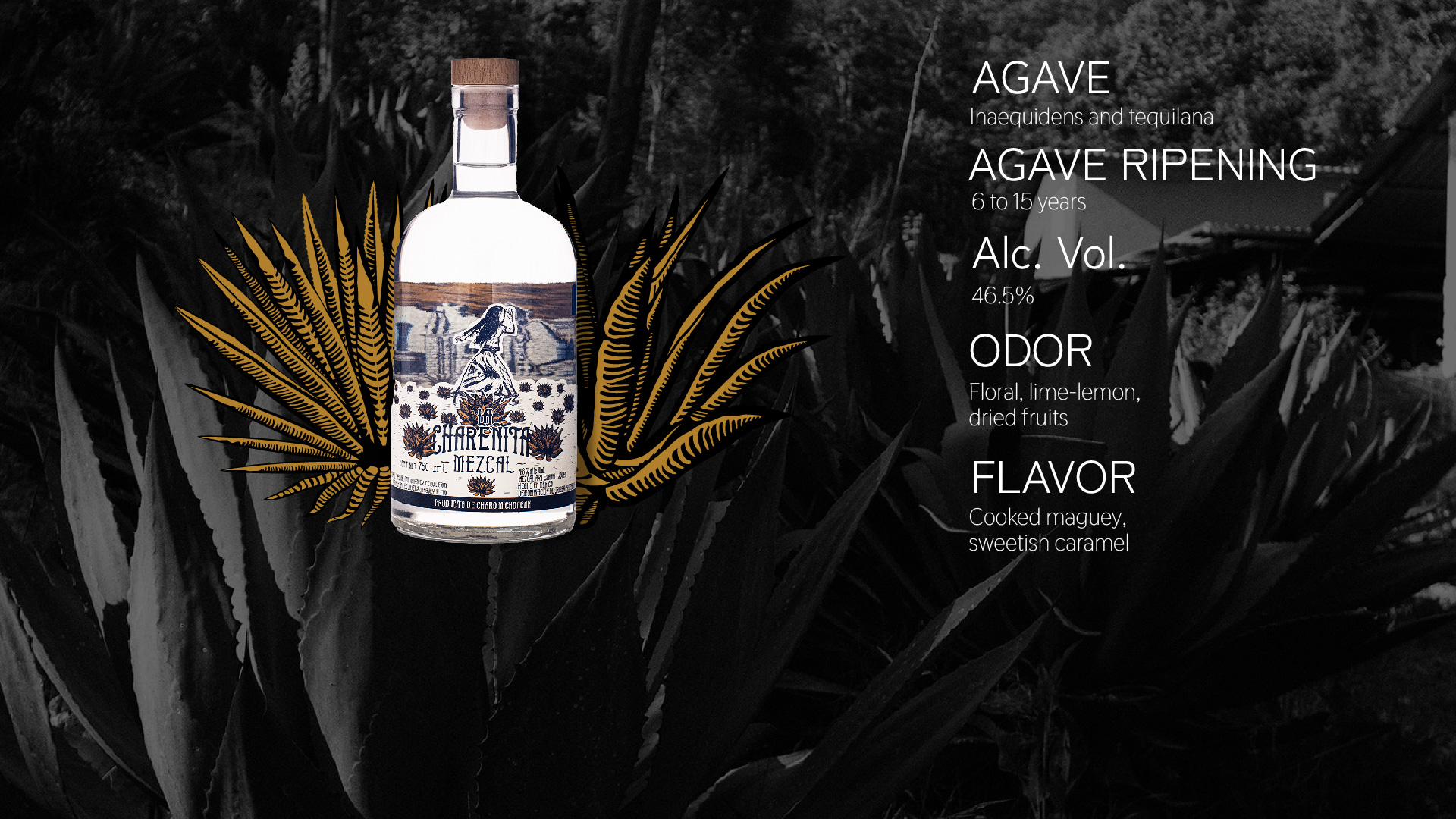
ENSAMBLE
50% agave inaequidens y 50% tequilana
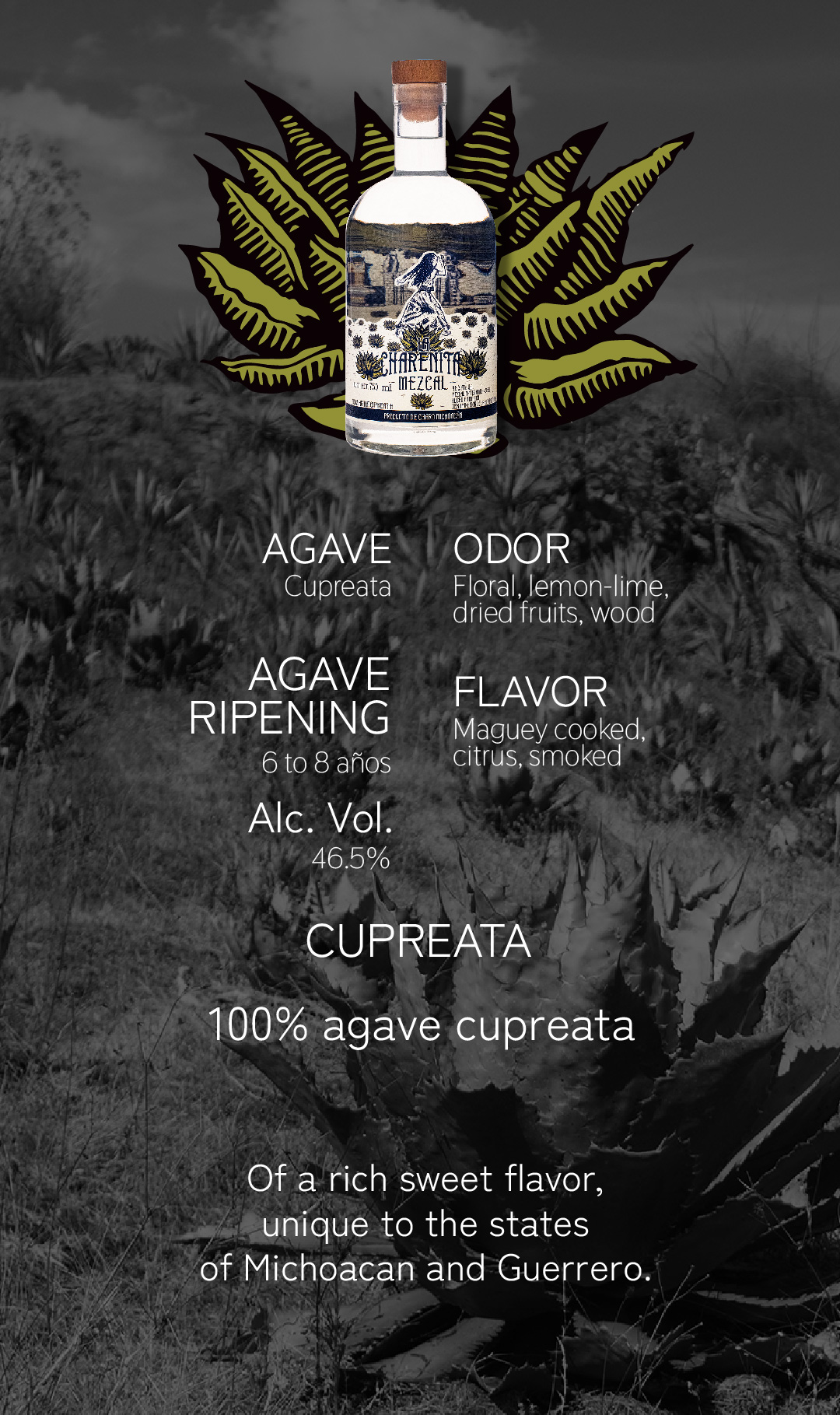
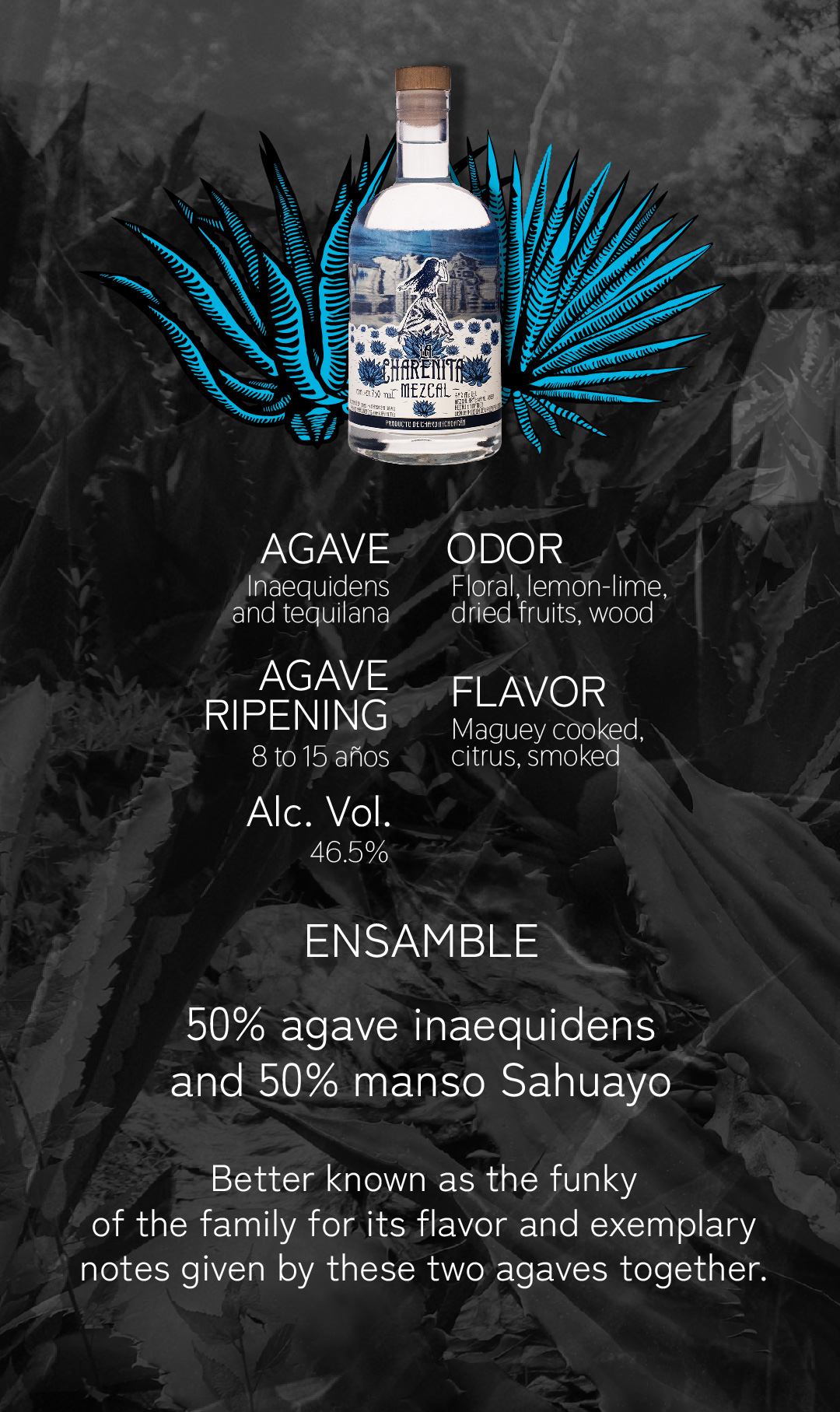
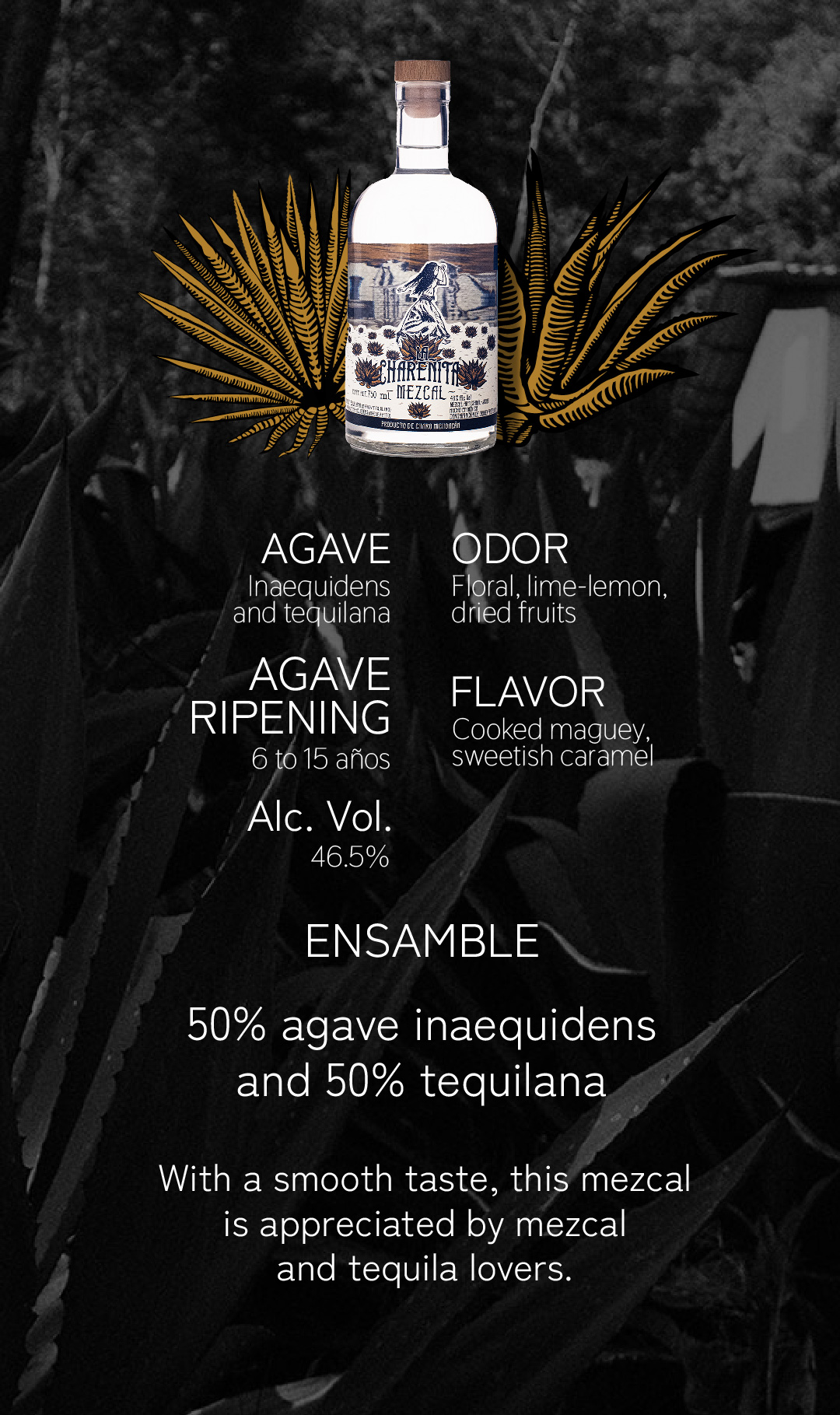
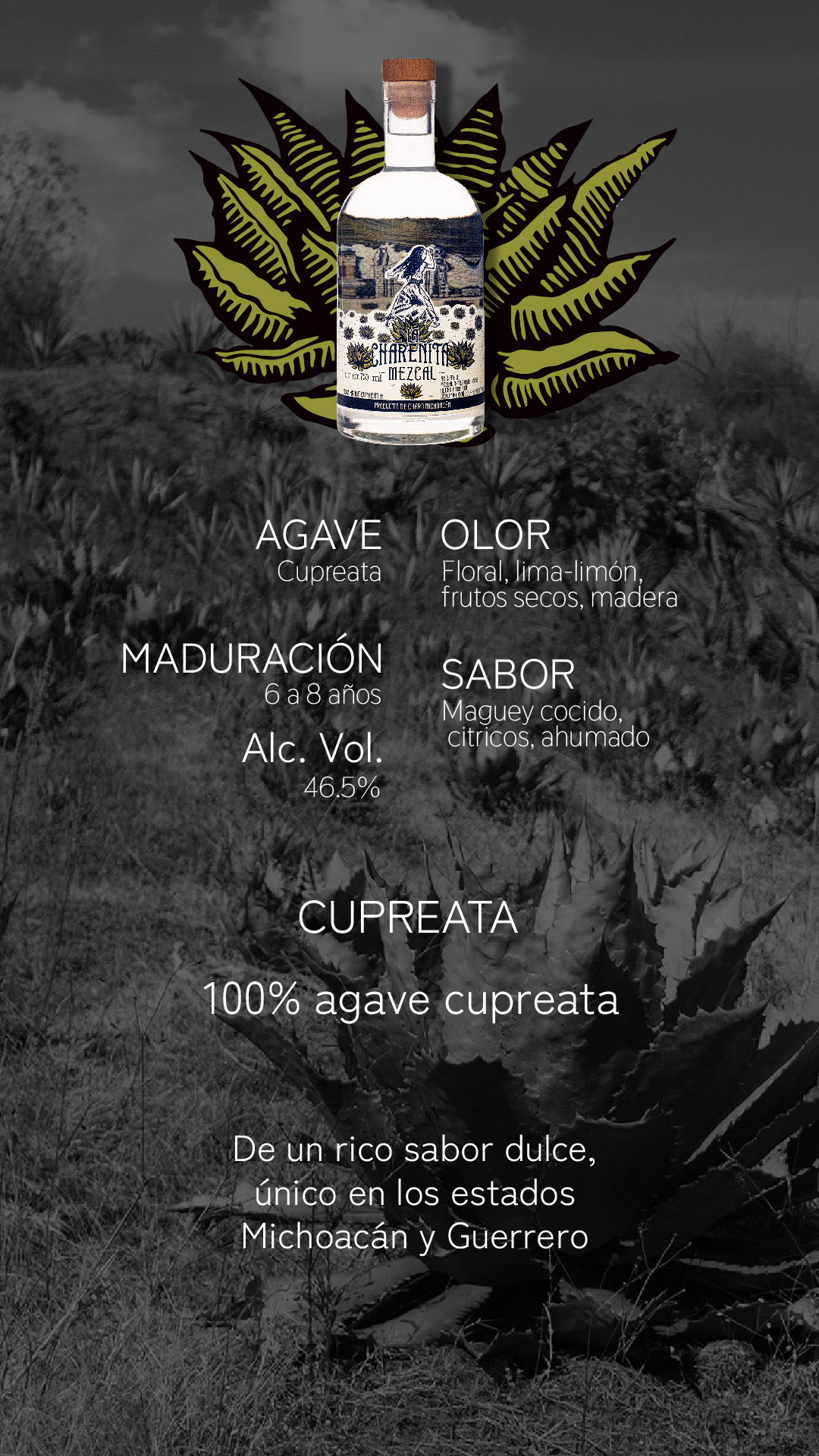
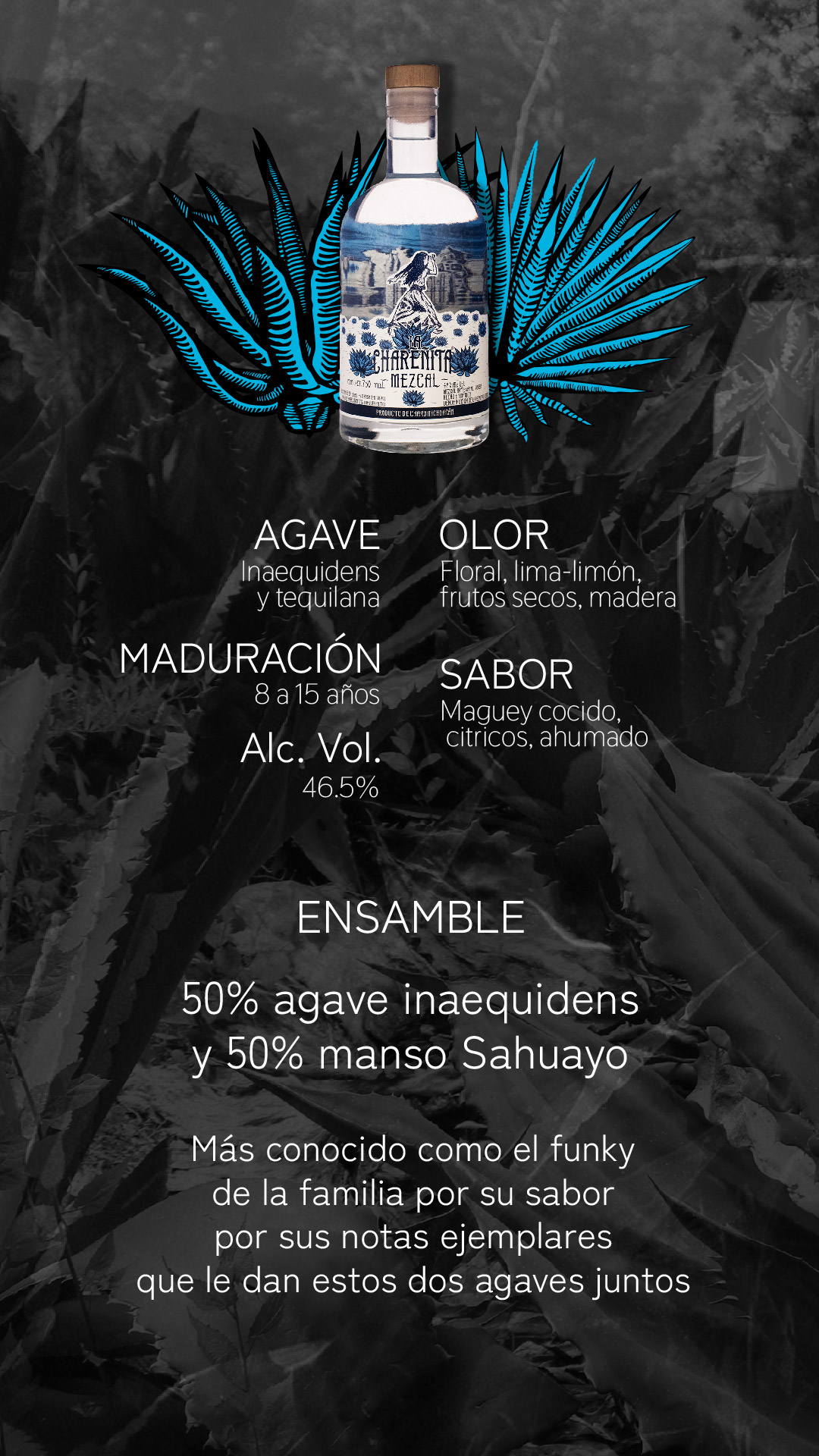
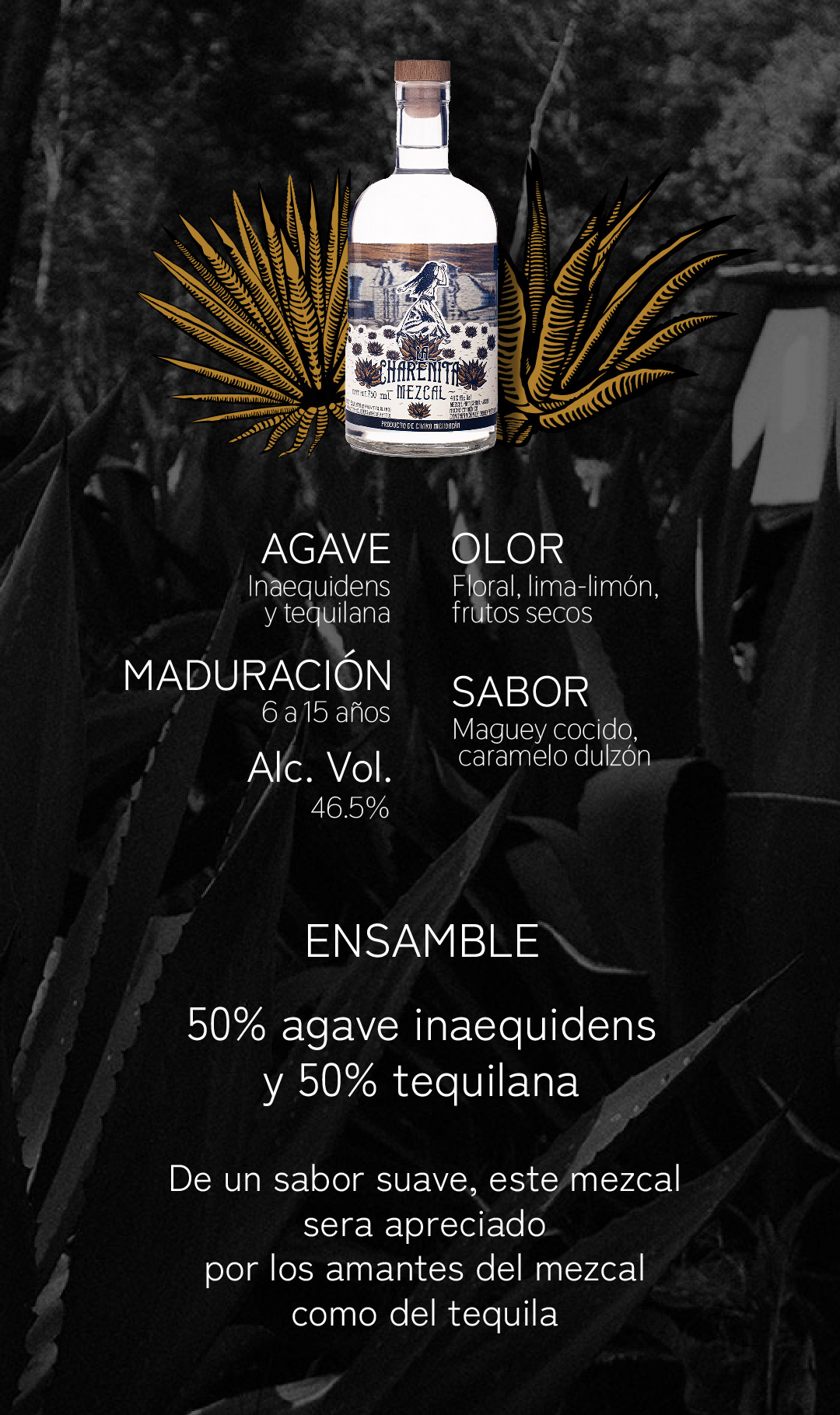
THE AGAVES
CUPREATA
Also known as maguey papalote, it is an extraordinary species that flourishes in the fertile soils of Michoacán and Guerrero. Its cultivation process is an art in itself, where our maestro mezcalero has perfected the techniques over generations. This plant takes years to mature, absorbing the rich flavors of the soil and climate unique from the region.
Agave Cupreata produces an exceptionally smooth mezcal with smoky notes and a hint of sweetness. Its complexity of flavor is unmatched, offering nuances of caramel, ripe fruit and a subtle hint of spice.
INAEQUIDENS
Agave Inaequidens, nicknamed maguey alto or maguey bruto, is carefully cultivated in the lands of Michoacan, absorbing the flavors of the soil and climate of our region. Carefully cultivated and harvested, it is the soul of several of our mezcal blends, a true expression of Mexico’s roots.
Agave Inaequidens offers a distinctive flavor profile, with earthy, floral notes and a hint of smoke.
Experience the harmony between sweet and spicy, with hints of ripe fruit and fresh herbs.
MANSO SAHUAYO
Agave manso Sahuayo, nicknamed agave cenizo (ashy) because of its ashy hue, is a wonder of nature that grows gracefully in the Mexican countryside.
Our mezcales with manso Sahuayo agave offer a refined and complex flavor profile. With soft notes of vanilla, caramel and a subtle hint of pepper, each sip is a sensory experience that dances on your palate. Its smoothness and elegance make this mezcal a perfect choice for connoisseurs seeking a balance between the traditional and the modern.
TEQUILANA
Agave tequilana, also known as blue agave, grows in the sunny lands of Jalisco and Michoacán, absorbing the rich nutrients of the volcanic soil and temperate climate. Grown and harvested with precision, this agave is the heart of tequila and various mezcal blends.
Agave tequilana offers a smooth and balanced flavor profile, with sweet notes of caramel and honey, complemented by citrus and herbal nuances. Experience the perfect harmony between sweetness and freshness, with a smooth, slightly spicy finish.
Michoacan soil
Michoacan soil
The Michoacan soil in Mexico is known to be extremely suitable for agave cultivation, especially for the production of mezcal, tequila and pulque. Some of the characteristics of Michoacan soil that make it ideal for agave cultivation are:

Mineral richness
Michoacan soil is rich in essential minerals, such as calcium and potassium, which are essential for healthy agave growth.
Good drainage
Michoacan soils tend to have good drainage, which prevents water accumulation around the agave roots. This is crucial to prevent root rot problems.
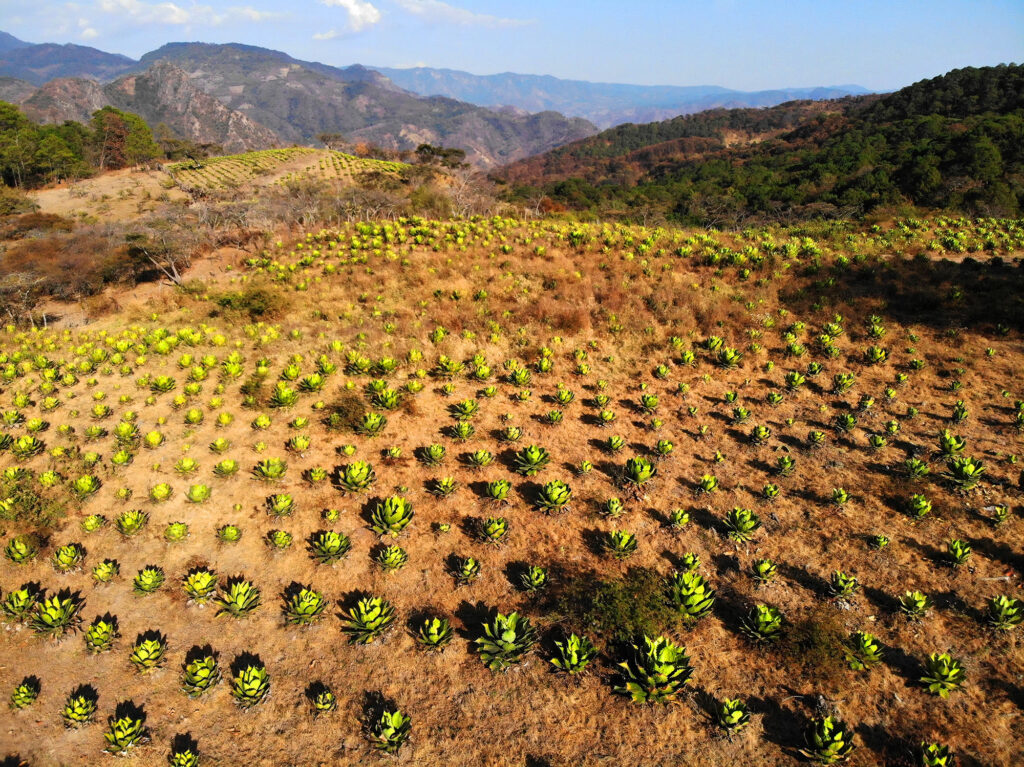
Soil texture
Soil texture in Michoacan varies, but many areas have sandy, loam or clay soils. These textures allow for good development of the agave root system.

Weather
Michoacan has a subtropical and temperate climate that favors agave growth. Temperature variations and the presence of seasonal rains are beneficial for the development of the plant.
Altitude
The altitude in some regions of Michoacan can vary from lowland to mountainous areas. Adequate altitude can contribute to the complexity of flavors in agave.

Biodiversity
Biodiversity in the Michoacan soil is also important. The presence of beneficial microorganisms in the soil can contribute to the health of the agave and the flavor profile of the final product.
These Michoacan soil conditions are essential for agave cultivation and the production of high quality mezcal. Mezcal and tequila producers in this region benefit from these natural characteristics to create exceptional products.








Mineral Richness
Michoacan soil is rich in essential minerals, such as calcium and potassium, which are essential for healthy agave growth.
Good Drainage
Michoacan soils tend to have good drainage, which prevents water accumulation around the agave roots. This is crucial to prevent root rot problems.
Soil Texture
Soil texture in Michoacan varies, but many areas have sandy, loam or clay soils. These textures allow for good development of the agave root system.
Weather
Michoacan has a subtropical and temperate climate that favors agave growth. Temperature variations and the presence of seasonal rains are beneficial for the development of the plant.
Altitude
The altitude in some regions of Michoacán can vary from lowland to mountainous areas. Adequate altitude can contribute to the complexity of flavors in agave.
Biodiversity
Biodiversity in the Michoacan soil is also important. The presence of beneficial microorganisms in the soil can contribute to the health of the agave and the flavor profile of the final product.
These Michoacan soil conditions are essential for agave cultivation and the production of high quality mezcal. Mezcal and tequila producers in this region benefit from these natural characteristics to create exceptional products.

The Michoacan soil in Mexico is known to be extremely suitable for agave cultivation, especially for the production of mezcal, tequila and pulque. Some of the characteristics of Michoacan soil that make it ideal for agave cultivation are:

Mineral Richness
Michoacan soil is rich in essential minerals, such as calcium and potassium, which are essential for healthy agave growth.

Good Drainage
Michoacan soils tend to have good drainage, which prevents water accumulation around the agave roots. This is crucial to prevent root rot problems.

Soil Texture
Soil texture in Michoacan varies, but many areas have sandy, loam or clay soils. These textures allow for good development of the agave root system.

Weather
Michoacan has a subtropical and temperate climate that favors agave growth. Temperature variations and the presence of seasonal rains are beneficial for the development of the plant.

Altitude
The altitude in some regions of Michoacán can vary from lowland to mountainous areas. Adequate altitude can contribute to the complexity of flavors in agave.

Biodiversity
Biodiversity in the Michoacan soil is also important. The presence of beneficial microorganisms in the soil can contribute to the health of the agave and the flavor profile of the final product.

These Michoacan soil conditions are essential for agave cultivation and the production of high quality mezcal. Mezcal and tequila producers in this region benefit from these natural characteristics to create exceptional products.

